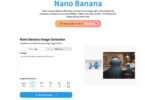Published on August 22nd, 2025
Contracts are considered the backbone of the corporate landscape. Handling contracts properly is regarded as a key factor in the success of your business.
To maintain unparalleled growth and operational excellence in this modern time, you need to create an integration between your contract lifecycle management solution and the customer relationship management software.
As per statistics, organizations that automate contracting through CRM–CLM integrations commonly report 30–50% reductions in contract cycle time due to automated approvals, status syncing, and self-service generation from opportunities.
This merger between CLM and CRM software is not about efficiency; it is a big step that can help with improving sales operations and building long-term customer relationships.
The Importance of CRM & CLM Solution in the Business Landscape
The CRM and CLM software need to work together to turn business relationships into revenue while controlling risk.
While CRM organizes sales data and interactions, CLM manages contracts end-to-end, adding visibility and speed.
Customer Relationship Management (CRM)
For sales professionals, the CRM solution is a single place to track leads, deals, and customer conversations.
It can track opportunities, accounts, leads, contacts, and other sales-related information, offering valuable insights into the business.
The application helps to check forecasting, tracking, and managing sales leads in the easy-to-use dashboard.
Contract Lifecycle Management (CLM)
The AI-powered contract lifecycle management software can automate and streamline your contract lifecycle from creation to execution, and from approval to renewal.
With its advanced features, the software helps businesses manage risk in a better way, along with streamlining the contract lifecycle management.
While you need to unify the customer activity and contract workflows to help businesses sell faster, the integration can help you to negotiate smarter, and stay compliant resulting in predictable growth, lower risk, and stronger customer trust.
What are The Benefits of Integrating CLM & CRM Software?
When a new sale is about to happen, salespeople usually ask the legal team to create a contract. To create a contract, salespeople need to stop using their CRM system, where they usually manage their sales work.
They need to switch to another method of communication, such as sending an email, making a phone call, or sending an instant message to speak to someone in the legal team or with their clients.
With an integrated system, contract tools are built into the CRM, so salespeople can request contracts without leaving the app to the legal team.
They can also search for contracts and check approval status without bothering the legal team.
At the same time, legal and contract teams can easily see which high-priority tasks need their attention, while routine, low-level tasks are handled automatically.
Read More: Marketing Tools To Grow Your Brand
Top 7 Benefits of Integrating CRM & CLM Solution
The seamless integration of CRM and CLM solutions can bridge the gap between sales and legal procedures. It creates a streamlined approach between managing customer data and contracts.
Here are the 7 key benefits of integration:
1. Making The Team More Efficient
The integration between CRM and CLM solutions makes the sales cycle shorter by drafting the contract automatically within the CRM solution.
The sales department can quickly initiate the request for a contract without the requirement of switching platforms.
The preset templates help the sales team by delivering the required contract in a very short time without taking up a lot of time.
2. Data Driven Decisions
The sales teams can view signed contracts directly in their CRM platform after the integration between CRM and the CLM solution.
This merger makes it easy for the sales team to find the details of what they were searching for.
Quick access to key contract terms helps in making data-driven decisions during sales calls and renewals.
The sales representatives can respond quickly and accurately to contracts linked to the clients. It results in data-driven decisions and smoother negotiations.
3. Enforcing Standardization of Contracts
Businesses use integrated contract management and customer relationship solutions to make sure only approved contract templates are being used and the right person is signing the contract.
The sales representative fills out a simple online form, and the system uses their answers to build the contract and maintain compliance.
This integration makes the process faster and more accurate, with everyone using the same approved documents, thus enforcing standardization of contracts.
4. Ensuring Meeting of Obligations
After a contract is signed, both sides need to do what they agreed to. An integrated CRM and CLM solution turn that promise into tasks, assigns them to the right people, and surfaces them at the right time.
This prevents missed steps, improves compliance, and gives the customer smoother and reliable experience.
5. Real Time Visibility
Smart CLM software lets sales teams see what is happening with their contracts in real time. They can track and review contracts easily.
Integration helps them make better decisions and improves how contracts are managed. It also shows how well contracts are performing, so sales teams can identify issues and make the necessary improvements.
6. Automated Content Creation
A smart CLM system can automatically create contracts using customer information taken from the CRM software.
It helps sales teams generate contracts quickly and avoids mistakes that often happen when doing it manually. The integration can make the entire process faster and accurate.
7. Centralized Data and Analytics
The integration of CRM and CLM solution means you are syncing CRM data with contracts, which results in getting a clear view of how the contract is performed and interactions with the clients.
This helps sales teams to track trends, spot risks, and make better business decisions. With all data in one place, it is easier to improve processes and deliver more consistent customer experience.
The integration between CRM and CLM solutions can benefit both the sales and legal teams.
The sales representatives can request contracts, track their status, and go through important documents without leaving the CRM.
Legal teams can benefit from automated reminders and workflow tools that make compliance simple.
Read More: Best Blogging Software For Business
Final Thoughts
The integration between CLM and CRM software can be understood by its impact on improving efficiency, reducing errors, and accelerating the sales cycle.
When the business has a firm goal to boost productivity, reduce contract risks, and enhance sales efficiency, integrating CRM and CLM can prove to be the game-changer.
SutiCLM, the contract lifecycle management solution, can seamlessly collaborate with any CRM solution to automate contract creation and improve contract management. It empowers the sales department to make data-driven decisions, along with closing the deals faster.







